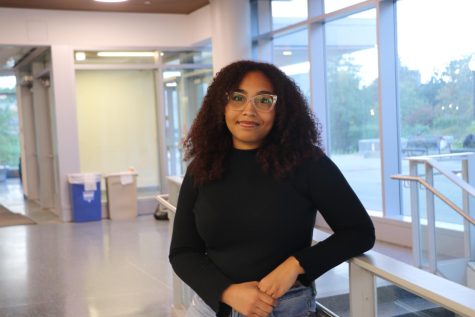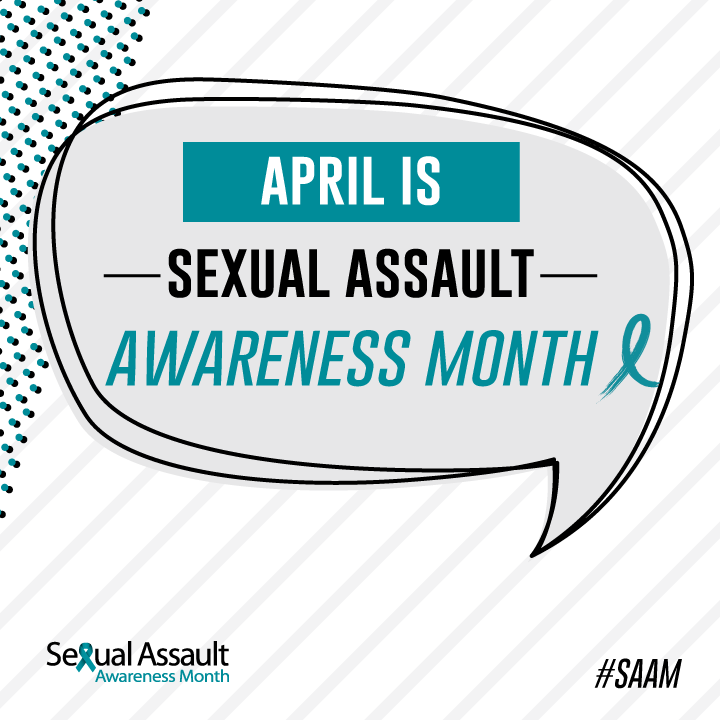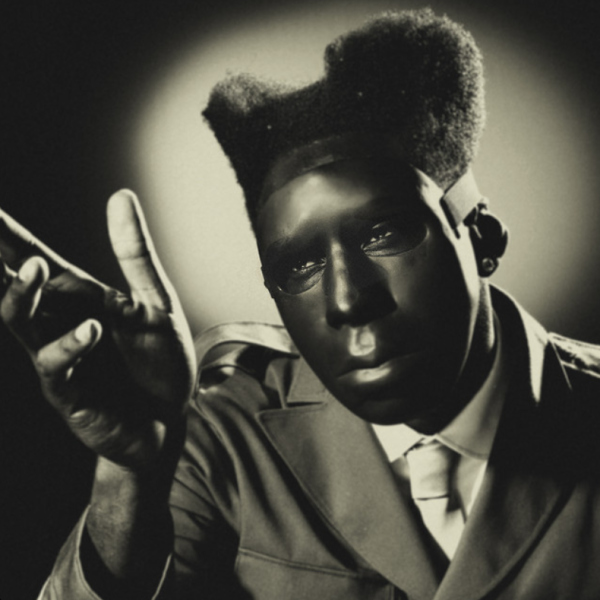Sexual Assault Awareness Month: My Story
Sexual assault and abuse happens more often than some may think, now is the time for me to tell my story and journey towards healing
We all hear stories about sexual assault and sexual abuse and we think, “that can’t happen to me.” This may be based on the assumption that these situations are uncommon, but that is far from the truth. According to a survey done in 2015 by the Centers for Disease Control and Prevention (CDC), approximately 43.6% of women and 24.8% of men in the U.S. are victims of contact sexual violence, which includes sexual coercion, rape and/or unwanted sexual contact.
April is Sexual Assault Awareness month, and I thought this would be the most appropriate time to share my experience and what happened to me.
I was in what I considered my first adult relationship. My partner knew I had no previous sexual experience and that I was nervous to explore that side of myself. I was naïve and so excited about the start of this relationship that I didn’t process what happened to me until much later. I felt so much confusion and embarrassment from these experiences and thus, I pushed them deep into the back of my mind in hopes that I would forget.
Warning: the remainder of this story contains content including sexual assault.
My boyfriend at the time, knowing I was awkward with physical touch, had what he called an accidental “habit” of touching me where I wasn’t completely comfortable. There were so many times where he would touch my waist, back, stomach, chest and legs underneath my clothes despite me saying that I didn’t like it every time it happened. One night we were kissing and he started to touch me. Sometimes he would ask if I was alright with his advances and other times he would just make them. This particular night he grabbed my hand and placed it over his privates. I was shocked and confused that he did that, so I moved my hand quickly and said something that would indicate that I did not want to do that—but I didn’t specifically say the word “no.” He grabbed my hand again a little harder and placed it in the same area, holding it there. What were a few seconds felt like a few years. After that night I was mortified with what he did, but I tried to convince myself that it wasn’t that bad. I convinced myself that things like this are a normal part of being in adult and sexual relationships, so I didn’t tell anyone.
This unfortunately was just one of the multiple times this happened. There was another night we were kissing where I had let him make more advances. I was nervous and thinking, “This is what happens right? You’re supposed to get closer and closer to sex every time you get physical with your partner, right?” He had taken off my bra underneath my shirt during the time we were kissing, which I let him do—but I expressed that I didn’t want it to go any further than that. I didn’t want him to see any part of my body unclothed. In response, he had said that it would be okay and that he wasn’t going to judge what I looked like. That was not the problem for me though, I wasn’t worried that he would judge my appearance, I just wasn’t ready for that moment yet. Instead of trying to hear me, he lifted up my shirt and attempted to touch my breasts with his hands and his mouth. I immediately told him I was not okay with what he did and I ended the night right there. We broke up a few months later.
I was so disgusted with what happened, and the previous nights where things had gone further than I wanted them to. I was mad at him for not respecting my boundaries but I was also upset with myself. When these situations happened, I felt outside of myself. I felt disgusted and violated. I felt helpless that my words and boundaries meant nothing to him—that because I was his inexperienced girlfriend, he could do whatever he wanted. My feelings about sex and my experiences with him were so puzzling and humiliating that I didn’t tell anyone, and I refused to think about it.
It wasn’t until much later when I confided in my mother about what happened to me in that relationship that I realized it was wrong, and most importantly it wasn’t my fault. I struggled with now being considered a victim of sexual assault. I thought that label was reserved for people who have experienced much worse. I had to learn that even though someone may have been in a more difficult spot, my trauma was just as valid and what happened to me was just as much wrong. I know a lot of other people have been in these situations before in which they feel confused and ashamed about what happened to them. I know the fear of telling people and them not believing you or worse, not caring about what you went through.
Reader: I need you to know that if something like this has ever happened to you, it is not your fault. It doesn’t matter if you didn’t say “no” explicitly. It doesn’t matter if you didn’t say anything at all. If you didn’t give the other person an enthusiastic yes or even a response along those lines, they had no right to violate your boundaries. They had no right to coerce you and move forward with something you were not comfortable with.
The idea of telling people this story completely terrified me but, in this process of reflection and healing, I think it’s imperative that I open up about this. I will never fully heal and this will always be something that proves to be traumatizing for me—but my work with my mental health resources will, and has already, made this process much easier in terms of coping and moving forward.
If you or someone you know has been a victim of sexual assault, first off, I want to apologize and tell you that what you went through was not fair. Utilizing available resources can be helpful in processing your experiences and moving forward. Here is a list of mental/behavioral health resources to take advantage of:
- The Center for Counseling and Psychological Health (CCPH) has a variety of mental health resources and counseling, ranging from individual therapy sessions as well as group sessions. They have crisis services, call the 24-hour hotline: (413) 545-0800.
- CCPH has specialty services including the Center for Women and Community where they focus on peer counseling, support groups and referrals geared towards sexual assault and abuse.
- Clinical and Support Options (CSO), a group of behavioral health and substance abuse services with outpatient locations in the state. They encourage walk-in appointments at all locations. The closest walk-in center to campus would be the North Hampton location. Call them at: (413) 582-0471
- Resources outside of the UMass and Five College community can be hard and stressful to find. The following links including Psychology Today and the Substance Abuse and Mental Health Services (SAMHSA), can help you find mental health resources near you.
Email Aliana at aliztavares@umass.edu or follow her on Twitter @aliztavares

"Success is liking yourself, liking what you do, and liking how you do it" -Maya Angelou











